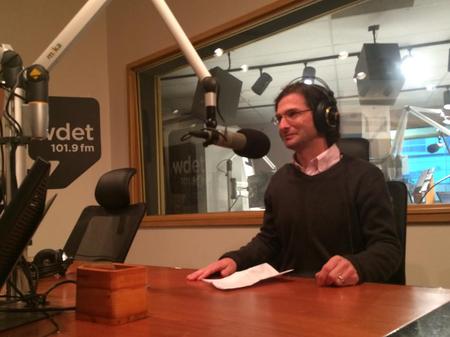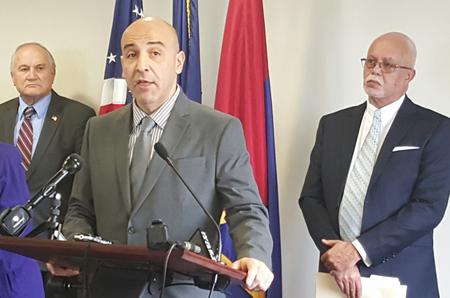Local Experts Weigh In on Syrian Conflict and Balance of World Power
We’ve seen a “short honeymoon between the United States and Russia,” says professor. “Syria is the breaking point.”


The civil war in Syria is six years old, and there’s no end in sight.
Last week brought three watershed moments in the conflict:
- The Trump Administration stated that removing Bashar al-Assad is no longer a priority.
- The Syrian military then launched a deadly chemical attack, killing dozens of civilians.
- In response, President Trump launched the United State’s first military strike against the Syrian government.
This week, United States officials are meeting with the G7 in Italy, and will try to put pressure on Russia to distance itself from Assad.
What will this all mean for the conflict in Syria, U.S. foreign policy, the new administration, and the balance of world power?
Detroit Today host Stephen Henderson speaks with Aaron Retish, history professor at Wayne State University with a specialization in Soviet and Russian history, and Dr. Mouhanad Hammami, director of the Wayne County Department of Health, Veterans & Community Wellness, who is a native of Syria.
“There are two different approaches that you could take,” says Retish. “One is that this is the beginning of a complete U-turn in American foreign policy that they’re now going to be much more aggressive to try to get [Assad out of] Syria… and they’ve really called on Russia to pull back from its long support of Assad and the Syrian government. And for the first time, Russia has turned away from the Trump Administration… So, this could be a complete rejiggering of American foreign policy in Syria. The other way of approaching it is that this is a one-off, that bombing an airfield is basically one step further than doing nothing.”

Hammami, who is originally from Aleppo and whose family is still in Syria, seems to think the latter is more likely to be true.
“This has been happening for six years already,” he says. “Death is death regardless of how it happens. So there [have] been children that have been dying by conventional weapons… just to react for it happening now just because it’s chemical versus barrels or rockets or whatever is just kind of puzzling for us, the Syrian Americans that have been watching… This is a ‘one strike’ that, within 24 hours that airport has been fixed and they are still able to fly and go and continue the hostilities.”
With the myriad components to this conflict, how will this turn out for the U.S.?
“The Trump Administration is still entangled with Russia,” says Retish. “Even though there are these optics and (Secretary of State Rex Tillerson) and (U.S. Ambassador to the United Nations Nikki Haley) have denounced Putin… interestingly Trump has not… This is this key tension point where you can see this as a very short honeymoon between the United States and Russia, and that Syria is the breaking point.”
Henderson also asks Retish and Hammami about what this says about Trump’s stance on admitting Syrian refugees into the United States.
To hear the full conversation, click the audio player above.
